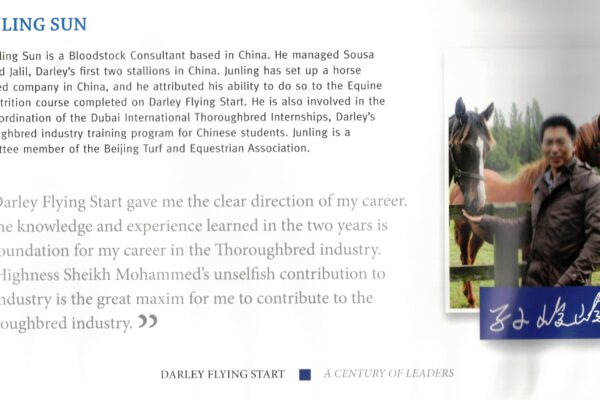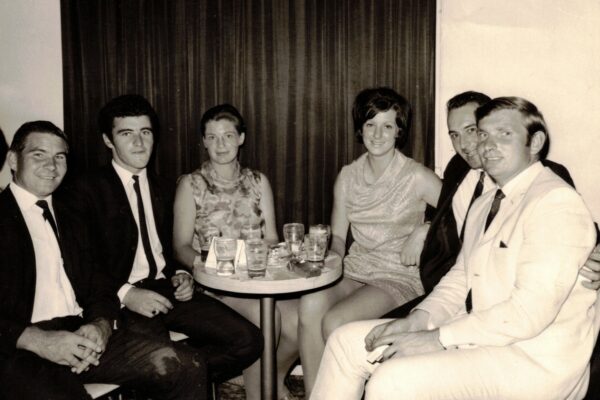Caroline Jones
Murrurundi’s Multi-Media Maestro Pioneer from Mayne Street
See: Caroline Jones, beyond the news, photos | Newcastle Herald | Newcastle, NSW
See also: Caroline Jones: A girl from the bush who became a trail blazer – ABC News
See also: Caroline Jones Death, Outstanding Journalist Caroline Jones Has Died – Death-Obituary.com
Caroline Jones
Outstanding journalist, Caroline Jones has passed away at the age of 84. Jones was born and raised as an only child in the small country town of Murrurundi in the Upper Hunter region of NSW. Caroline was the first female reporter at This Day Tonight.
She quickly forged a reputation as a fierce, credible, and hard-hitting reporter. Joining the ABC in 1963, Jones worked on the This Day Tonight program, after which she became the presenter of Four Corners, with a weekly audience of 2 million viewers.
Her legacy will lie in the pages of newspapers, podcasts, television news reports, radio broadcasts, and online. Her colleagues remember her as a dignified, respected, and much-loved journalist who never shied away from exposing wrongdoings in her reporting.
Jones is remembered as a warm and kind person with a wicked sense of humour, but perhaps her biggest legacy is the strides she made for women in media and television.
Caroline Jones, beyond the news, photos
See: Caroline Jones, beyond the news, photos | Newcastle Herald | Newcastle, NSW
By Rosemarie Milsom
Updated December 15 2013 – 3:51pm, first published December 13 2013 – 10:00pm
WHEN Caroline Jones turned her ‘‘little Volkswagen’’ into the driveway of ABCTV’s Gore Hill studios, she was filled with excitement and apprehension. It was 1969 and the naturally shy, Murrurundi-born reporter had landed the job of a lifetime at the ground-breaking national current affairs program This Day Tonight. She became the first woman news reporter on Australian television and the newspaper headlines – so overtly sexist in retrospect – made a fuss of the ‘‘girl’’ entering a male domain. She was 31.
‘‘I remember thinking, can this really be me, and then I just hurled myself into it with this team of amazingly competitive upwardly mobile young men,’’ Jones laughs.
‘‘There were other women at the ABC including the program secretary who I adored, and there were women researchers and script assistants, but of course they always make a fuss of the reporters, don’t they?’’
The team she joined included Bill Peach, Ray Martin, Mike Carlton, and Richard Carleton. It was a competitive, demanding environment and the program courted controversy with its combative interviews. Having arrived from the ABC’s Canberra studio where she’d hosted news and arts programs, Jones relished the daily deadlines and the discipline of the ‘‘same-day story’’. She won a Logie award in 1972 for an investigation of inner-city slum landlords.
Says Carlton: ‘‘She had all the skills; she was curious, she was dogged, she had a very strong sense of social justice, of what was right and wrong. Caro focused on stories that exposed injustice and wrong-doers.
‘‘I was very much in awe of her,’’ Carlton adds. ‘‘She seemed to be so experienced and so knowledgeable and calm, cool and collected. She was always a serene person, and still is. I’ve seen her get angry, but it’s always an icy calm. I could never imagine her in a shouting rage.’’
The men gave her the nickname ‘‘matron’’. ‘‘She was slightly older than some of us,’’ laughs Carlton, ‘‘and she was the only woman in the room.’’
‘‘It was important for me to do the job well,’’ remembers Jones, 75. ‘‘It dawned on me that if I did well, it surely must open the door for other women.’’
She went on to also become the first woman to host Four Corners, a stint that lasted nine years and which she combined with presenting ABC radio’s public affairs program City Extra. Then, in the late 1980s, after taking an extended break from the industry, she returned to host the acclaimed Radio National program, The Search for Meaning.
She has enjoyed a multi-faceted career and last month, the gracious and much-respected journalist was presented with the prestigious Walkley Award for Outstanding Contribution to Journalism (Herald journalist Joanne McCarthy was presented with the Gold Walkley Award on the same night in Brisbane). This is Jones’s 50th year in the media industry and her 17th as a valued presenter and contributor with the award-winning Australian Story.
It is hard to believe that she was once a shy and timid teenager who failed in her first attempt to secure a start in journalism at 17. Inspired by her maternal grandfather, Ashley Needham Pountney, the son of a convict who established The Werris Creek Express and The Murrurundi Times, Jones headed to Sydney and did the rounds of the city’s mastheads with the hope of obtaining a cadetship.
‘‘I would not have appeared to have the determination, or the grit, or the drive, to be worth investing in,’’ she says. ‘‘I was an introvert who could write reasonably well but I’m sure they thought, ‘this kid doesn’t have the personality we are looking for’.’’
Jones was an only child who grew up in a cottage adjoining the Murrurundi Times office on Mayne Street. Her grandfather died the year she was born, but she remembers clearly the accounts of his influential role in the upper Hunter community. His first editorial in a new local newspaper, The Quirindi Advocate, was a pledge to readers promising them advocacy, no sacrifice of principle for financial gain, the promotion of goodwill in the community, and the circulation of nothing to hurt feelings nor cause dissension.
The Bushman’s Carnival at Murrurundi was one of his projects, as was the water scheme and the shale oil plant. Jones’s mother Nancy also wrote a weekly column.
‘‘Murrurundi was very formative for me,’’ says Jones, on the phone from her Sydney home. ‘‘I was growing up in a country community and that stays with you your whole life. The landscape of the upper Hunter is imprinted on my imagination. That district and that town I think of as my spiritual home.
‘‘As a child I was in the shearing sheds – I can smell all that, I can treasure that; that to me is real, that has value, the people were very solid, generous.
‘‘I have a memory of the town which is very strong, very reassuring, and certainly affects my view of the world, my view of public policy, because I have a strong sense of rural and regional people and whether they’re getting a fair deal or not.’’
I could listen to Jones speak all day. Her mellifluous voice, perfect for TV and radio, loses none of its effect on the phone. She is precise and measured.
Jones is eager to share her childhood memories – visiting the beach for the first time in Newcastle; standing on the back steps of her paternal grandparents’ Mayfield home with a view of BHP’s ‘‘great billows of smoke’’, alighting the steam train in the city and being thrilled by the hustle and bustle of Hunter Street.
‘‘During the Second World War my father was in the AIF and for some period of time he was in camp in Broadmeadow, and I do remember my mother and I visiting him on a couple of occasions and spending the day with him,’’ she says. ‘‘He was away all the duration of the war. I remember travelling on the steam train between Murrurundi and Newcastle and it was all very exciting. The trains were very crowded and an army greatcoat would be folded on the luggage shelf and a child placed up there to sleep.’’
The family moved to Gosford and she completed her schooling at Gosford High School after spending two years at boarding school in the Southern Highlands. She has written of that time in her 1998 best-selling book, An Authentic Life: Finding Meaning and Spirituality in Everyday Life, describing her loneliness and sadness at being separated from her parents. ‘‘They thought it would provide me with a good education,’’ she writes. ‘‘Yet I can still feel the desolation of the day they left me there. Against our intuition, the three of us were acting out a painful charade with a pretence of normality.’’
Jones has never shied away from asking the difficult questions – of herself as well of others. She has been upfront about her public success and private loneliness, as well as her depression. She converted to Catholicism in 1985 having retreated from the media four years earlier to pursue a personal search for meaning. She’d grown tired of the adversarial tactics of hard-nose journalism – and found herself out of work.
‘‘I’ve had periods of unemployment and you take the time to reinvent yourself and take stock of what your skills are and apply them where you can,’’ she says. ‘‘During time off, I’ve written books and I learnt the discipline of the 800-word opinion piece and wrote for a number of newspapers.
‘‘I’ve always found something else to do when there wasn’t always continuous, permanent employment.’’
Jones made the unconventional decision in the 1960s not to have a family. ‘‘I chose not have children,’’ says Jones, who married and divorced early in her career. ‘‘I thought, no, I’ve been given all these incredible opportunities and I realised that was my pathway and I’d do well to stick to it. I just made a choice and it was the right decision for me but now you see, women naturally want a family life, and I sometimes think it’s at great cost and strain.’’
Jones is the patron of the newly formed national body, Women in Media, an initiative of the Media Entertainment and Arts Alliance and supported by the Walkley Foundation in partnership with a group of senior women journalists.
She is deeply committed to assisting younger women working in the media and she hopes that the organisation will find ways to be useful and relevant for journalists in regional areas. ‘‘We’ll have three to four events a year, and seminars,’’ she says. ‘‘It seems to me that how women juggle work and family is a big concern and I’d hope that our mentors can assist.’’
Says Mike Carlton: ‘‘She absolutely blazed the trail, there’s no doubt about that. Every woman who has a job in television current affairs and news today owes her a debt of gratitude.’’
ON THE JOB: Top, Caroline Jones interviewing Peter Ustinov on ABC Radio in 1978.
DOOR OPENER: Caroline Jones with the Walkley she was awarded last month for her Outstanding Contribution to Journalism.
Images of Caroline Jones from childhood in Murrurundi to media pioneer.
Images of Caroline Jones from childhood in Murrurundi to media pioneer.
Images of Caroline Jones from childhood in Murrurundi to media pioneer.
CHILDHOOD: Caroline Jones on a trip to a Newcastle Beach, age 5.
Images of Caroline Jones from childhood in Murrurundi to media pioneer.
Images of Caroline Jones from childhood in Murrurundi to media pioneer.










